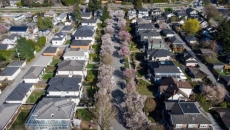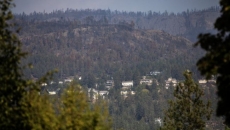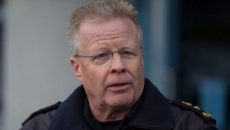Policy watchers are split on the value of British Columbia's upcoming provincial flipping tax targeting those looking to make a quick buck in the real estate market.
Brendon Ogmundson, chief economist of the British Columbia Real Estate Association, says the tax could end up reducing the overall number of homes on the market while only applying to a small number of properties.
Ogmundson also said the new law may not generate the kind of overall revenue the government is predicting — in part because it runs the risk of discouraging people from putting their homes on the market, resulting in lost property transfer taxes.
"I think that the cost of this policy, and the unintended consequences of it on the supply side of things, are more trouble than they're worth in terms of the effect on affordability, which is very minimal," he said.
Paul Kershaw, a policy professor at the University of British Columbia and founder of the think tank Generation Squeeze, said while the tax may only impact a small number of properties, it sends an important message that the province is "recalibrating" around the principle of having a home first and an investment second.
"We still need to turn our attention to the here and now, looking back at how much wealth has already been accumulated, and just putting in a flipping tax is not going to address that," he said.
As of Jan. 1, 2025, homes in B.C. sold within the first year after being purchased will face a tax rate of 20 per cent of the profit, while that tax rate drops gradually to zero after two years.
Ogmundson said about 10 per cent of real estate transactions in Metro Vancouver take place within two years of a purchase, and many of those would qualify under a long list of exemptions including divorce or job relocation.
He said would-be sellers who don't qualify for an exemption but are near the end of the two-year window may be tempted to wait it out.
"It's a very real risk that because of the way this policy is written, how it discourages potential listings, that you could end up with prices higher than they would have been otherwise," he said.
Kershaw said B.C.'s housing situation is caused by more than issues with supply and people have normalized the idea that housing prices will continue to rise.
While crediting Premier David Eby with having "better housing policy than any premier we've had before," Kershaw said it's not accurate for the premier to blame all of the province's housing woes on abuse from investors.
"What we need to be saying is, hard truth: We've created a lot of housing unaffordability in this province over the last many years, but we've also created a lot of housing wealth," he said.
"And is there a potential win-win there, where we can try and ask people like me, who've been benefiting from rising home values, to now be expected to contribute to a bigger part of the solution."
The budget estimates the tax will generate $43 million in its first full fiscal year, but the B.C. Real Estate Association predicts the province could lose out on $20 million in property transfer taxes as people put off their sales.
Ogmundson said there will also likely be additional costs related to administering the various exemptions.
Eby told a news conference Monday that the flipping tax, announced in last week's budget, is "not a silver bullet" and is only one of a series of actions the government is taking related to housing.
He said anything the government can do to reduce the number of people competing for housing in the market is welcome.
"It's not going work for everybody, but it's going to work for some people, and it's going to restrict speculators and investors from competing with families for a place to live," he said.
"We actually want the revenue from this tax to be zero. We just don't want people to be flipping homes in this way."
The premier announced the idea of a flipping tax last year and Finance Minister Katrine Conroy released details of the pledge in last week's budget speech.






